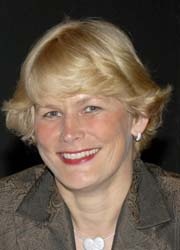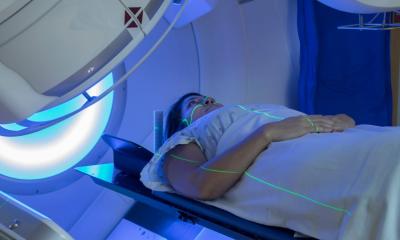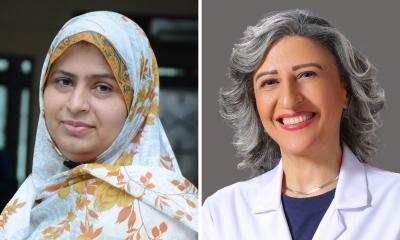MEDICA furthers international appeal
The congress, held in tandem with this world famous medical fair, has traditionally been held in German. Now a new English language section is to be introduced to the Medica Congress 2009 programme. Speaking with Meike Lerner (EH), Dr Julia Rautenstrauch, Secretary General of Medica e.V. and head of congress, explained how the new concept will be integrated into the overall congress structure and also outlined some of the stimulating topics international visitors can expect this year

Over its 40 year history Medica has grown from a regional event for laboratory doctors to the world’s largest medical technology fairs. Today, about 136,000 international visitors flood in. The strength of the event has lain in the combination of a specialist medical fair and congress, with workshops and seminars. However, the Medica Congress has always been held in the German language. To further its international appeal, this year (in Dusseldorf, Germany, 18-21 November), and in future years, the congress will include an English-speaking programme.
Almost 50% of visitors at the Medica trade fair come from abroad, Dr Rautenstrauch explained. ‘We also want to open the Medica congress to our international visitors, to strengthen the link between the fair and the congress. The new English language part of the congress will provide medical background knowledge on the five most innovative topics of the exhibition. This means that visitors to the fair with an interest in certain subjects can attend the corresponding congress lectures.’
There will be five main topics, which will remain the same each year: Imaging, Palliative Care, Future Trends in Surgery, Workflows and Procedures as well as Individualised Diagnosis and Therapy. ‘There will then be additional lectures on subjects related to each of these five main themes,’ she added. ‘The module Imaging will focus on Integrated Diagnostics and Therapy in Oncology; Workflows and Procedures will focus on Patient Monitoring. Dr Christian Falk, of Zurich University Hospital in Switzerland, will lecture on the world’s largest unit for the analysis of blood gases at the patient’s bedside. We made a particular point this year of attracting independent experts for our new format. The events are not sponsored satellite symposia. The industry has simply advised us in our choice of the main topics.’
Dr Rautenstrauch said that the choice of speakers was ‘… close to our hearts. We compiled a top-class international advisory board, made up of clinicians and scientists who are among the leading experts in their specialist fields, and either took on lectures themselves or advised us in our choice of lecturers. For example, the module Palliative Care will be moderated by what must be the most renowned European specialist in palliative medicine, Professor Stein Husebø from Bergen, Norway. There are further lecturers from Belgium and the USA. All experts will have co-lecturers who will complement these modules with important clinical aspects.’
Initially, the English language section will run for only three half days, Dr Rautenstrauch explained. ‘We are starting this “small but nice”, which will make it easier for the participants to switch between attending the fair and the congress. The present German congress already addresses a large specialist audience of doctors working in general practice and internal medicine, whose attendance here counts towards some of the obligatory training sessions that they must attend throughout their careers. These participants will probably be less interested in the additional programme; but then, they are not really our target group. It is more important to us to offer non-German speaking visitors the opportunity to gain medical background knowledge on tangible, special subjects. With an exhibition as international as Medica, the congress should reflect this openness. If our international module is well received – which we obviously hope it will be – then we will expand it further.’
01.07.2009





